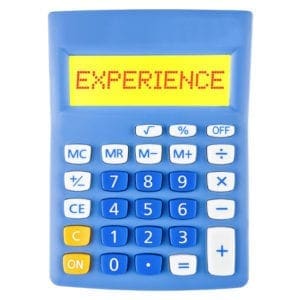The business of bringing customers what they want when they want it is no longer reserved just for premium services, but increasingly expected of economy brands as well. Service on-demand delivers a seamless experience by consolidating the process of discovery, order, payment, fulfillment, and confirmation.
 Fueling the demand is mobile technology, which has trained consumers to expect instant gratification whether finding a cab with Uber or a movie with Netflix. Many of these disruptive on-demand businesses have even grown to become more valuable than the entire industries they infiltrated.
Fueling the demand is mobile technology, which has trained consumers to expect instant gratification whether finding a cab with Uber or a movie with Netflix. Many of these disruptive on-demand businesses have even grown to become more valuable than the entire industries they infiltrated.
Hospitality is primed for service on-demand
Rather than diminishing hospitality traditions, on-demand mobile services can bring unprecedented convenience, customisation, and comfort to guests while increasing efficiency, feedback, and morale for staff—all of which translate to higher revenue. According to Box CEO Aaron Levie, “No matter what the business, there’s a path to move from the industrial age to the information economy.”
The hospitality sector has a natural edge in implementing on-demand service since it specialises in a customer-focused workforce—one of the biggest challenges of offering service on-demand— with an already captured audience walking through their doors and a barrage of services in place to be made available on-demand.
Why it matters
To survive in today’s “adapt or die” business world, industries and brands that did not proactively embrace new trends like on-demand services are either endangered or already extinct. Blockbuster was made irrelevant by Netflix and Redbox who recognized the growing consumer preference for data-driven discovery and instant-streaming. The taxi industry saw the average monthly trips-per-taxi plummet almost 65% in San Francisco since Uber launched there in October, 2012. And as Airbnb’s encroach on the hotel market has proved, changing values can quickly diminish formerly competitive, traditional advantages.
Today’s traveler is connected. When Marriott’s VP announced the company’s new app upgrade Mobile Request, he cited the 75% of travelers with at least one mobile device and that they want to “communicate on their terms.”
Mobile and digital technologies have redefined consumer expectations everywhere, and hotels are no exception. Those that fail to meet their guests’ expectations risk losing them. Without on-demand mobile service, guests might reflexively bypass your doting concierge for dot coms like Google or OpenTable, order Seamless instead of room-service, and use Luxe instead of the valet staff. Look only as far as room bookings and reviews, two processes formerly controlled exclusively by hotels themselves, to realise that without on-demand updating, hotel stays themselves are also threatened.
Hotel service on-demand offers tremendous opportunities
Merging on-demand with hotel stays can reinvigorate the hospitality business. For guests, it provides instant accessibility to hotel information, services, and amenities, through real-time communication with staff on- and off-premise.
For hotels, back-end implementation allows hotel managers and staff to receive, dispatch, track, and analyze every guest and internal issue, increasing communication and accountability.
This comprehensive view enables hotels to determine the drivers of guest value, ultimately leading to an enhanced hotel-guest engagement. With every request being turned into a digital footprint, the data implications offer hoteliers maximum productivity and guest understanding. People are creatures of habit, and those hotels able to proactively customize a guest’s room, meal, and even itinerary, create a connection that will be rewarded with future loyalty.
An on-demand infrastructure also seamlessly facilitates future innovations like mobile check-in and keyless entry, without the need to introduce yet another system for guests or staff to adopt.
With service on-demand, the result is often that consumers buy more frequently and more at a time. Studies show that the absence of cash causes consumers to spend more overall while also encouraging higher tips. One study even found consumers spend twice as much through digital channels than those not using mobile payments.
For hotels to ignore service on-demand is to leave money on the table and guests in the dark. Lighting their way with on-demand services will not only raise guest loyalty, satisfaction, and spending, it’ll also instill a digital competence for your staff, placing your hotel at the forefront of a very updatable cutting-edge.
About the author
 Alexander Shashou is president of ALICE (AliceApp.com), which has created the first mobile service-on-demand platform for the hospitality industry.
Alexander Shashou is president of ALICE (AliceApp.com), which has created the first mobile service-on-demand platform for the hospitality industry.















